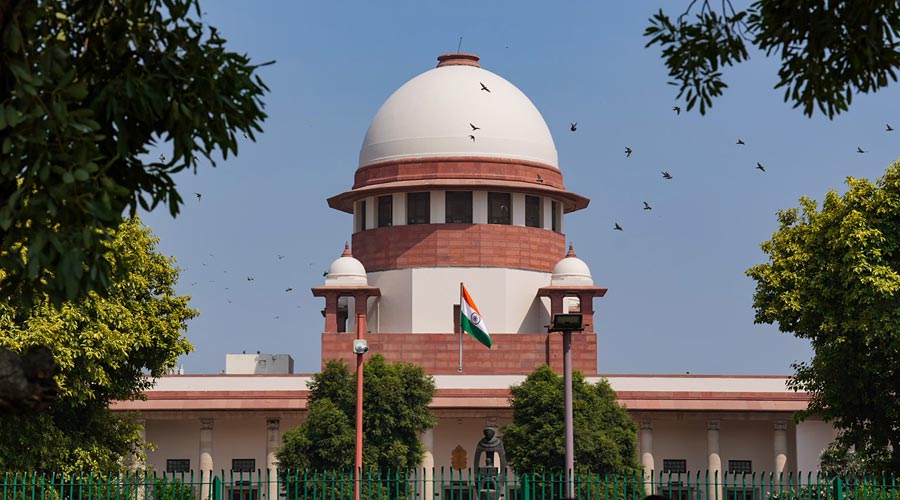Featured
Different Cancers that Affect Men: Penile, Prostate, Testicular, and More!
Here’s everything you need to know about cancers causing death in men worldwide and how taking timely action can save lives

June is ‘Men’s Health Month’, a time to shift focus on the health issues men face on a day-to-day, as well as a not-so-regular basis. What can be more important than talking about the different forms of cancers affecting men globally, from the prostate to penile, testicular to breast, and bowel to lung cancer.
As per published reports India witnessed increase in cancer cases at an average annual rate of 1.1 to 2 percent from 2010 to 2019. During the similar period the deaths due to cancer has also increased at an average rate of 0.1 to 1 percent. Data suggests that 1,392,179 cancer cases were diagnosed in India in 2020 alone. Among men, in particular, the estimated incidence was 94.1 per 1,00,000 individuals, while for women, it was 103.6 per 1,00,000 individuals in 2020. From a global perspective, the picture is not very great either. Cancer Statistics Centre projected an estimated 1,918,030 new cancer cases and 6,09,360 cancer deaths, both sexes combined in U.S. in 2022
As per reported incidence prostate cancer is the most common cancer type among men (26 percent), followed by lung (12 percent) and colorectal (8 percent). Amongst all major cancers, lung cancer accounted for 22 percent of all cancer deaths in men. Recent advancements in cancer treatment and early detection of cancer have been able to improve the survival rate in cancer patients but still there is long way to go.
In this article, we take a look at the most common cancers in men, their symptoms, and how to cope with cancer & take control.
- Prostate Cancer
The prostate is about a one-and-a-half-inch gland located right below the bladder and its main function is to develop seminal fluid. As men get older, the size of the prostate continues to grow and can lead to a condition known as benign prostatic hypertrophy (BPH or prostate enlargement). Fortunately, this condition doesn’t grow your risk of getting prostate cancer, but it’s good to know about the symptoms of both BPH, as well as prostate cancer. Often prostate cancer grows gradually and doesn’t cause any symptoms for a prolonged period. This means that even if men are diagnosed with prostate cancer, they can continue to live well-balanced lives with very little effect from the tumour.
Prostate Urinary Symptoms
Prostate cancer usually shows symptoms when its growth is large enough to interrupt your urinary bladder or pressurize the tube that drains urine. These symptoms are known as prostate urinary symptoms:
- Passing urine in short intervals, especially at night
- A slow flow of urine
- Difficulty in starting or stopping the flow
- Pain when passing urine
- Testicular Cancer
Testicular cancer is an outcome of a bunch of cells growing out of control and forming a malignant tumour. As the tumour progresses, it starts spreading to other parts of your system. Irrespective of its name, it can emerge from other areas of the body like the back of the abdomen, the lower spine, and most commonly, in the testicles. As compared to other forms of cancer, testicular is rare and but has good treatment outcomes.
Testicular Cancer Symptoms
- An enlargement or a lump in either testicle
- A slight ache in the abdomen
- A sense of heaviness in the scrotum
- An abrupt collection of fluid in the scrotum
- Back pain
- Discomfort or pain in the scrotum
- Penile Cancer
Penile cancer is a relatively uncommon form of cancer that affects the tissues and skin of the penis. This form of cancer occurs when the healthy cells in the penis start growing out of control, thereby forming a cancerous tumour. Cancer eventually spreads to other parts of the body, including the glands, lymph nodes, and other organs. Penile cancer emerges in different forms, such as melanoma, sarcomas, squamous cell carcinoma, basal cell carcinoma, and adenosquamous carcinoma.
Penile Cancer Symptoms
- Itching and burning sensation
- Changes in the color of the penis
- Thickening of the penile skin
- Swollen lymph nodes in the groin
- An ulcer that might bleed
- Bluish-brown growths
- Smelly discharge or bleeding under the foreskin
- Lung Cancer
Lung cancer is the second most common and the foremost cause of cancer deaths among both men and women across the globe. People who smoke have a much greater risk of developing lung cancer as compared to non-smokers. There are several types of lung cancers, but non-small cell lung cancer (NSCLC) is the most common type. Like prostate cancer, lung cancer, too, does not show symptoms in the early stages. The symptoms worsen as the cancer spreads and progresses. With early diagnosis and treatment, the condition can be significantly improved.
Lung Cancer Symptoms
- Pain when breathing or coughing
- Coughing up blood
- Shortness of breath
- Frequent lung infections, like bronchitis or pneumonia, due to the cancerous cells blocking the airways
- Hoarseness
- Chest pain
Tips for Coping and Living Well with Cancer
Realizing that you or someone you know has cancer is a dreadful experience. Different patients respond differently to the treatment, and subsequent recovery phase. This may affect one’s emotional, physical, and psychological well-being, which needs to be taken into consideration by the caregiver of the patient. Listed below are some of the coping strategies suggested for patients who are battling or have overcome any form of cancer:
- Be open to receiving help from friends and family members
- Maintain two-way communication with your healthcare team, loved ones, and others during and after your treatment
- Gather useful information about your cancer diagnosis to make a better decision about your care, but don’t obsess over the facts
- Embrace potential physical changes with a positive mindset and know that this phase is temporary
- Lead a healthy lifestyle by choosing a balanced diet, getting adequate rest, and indulging in enjoyable activities.
Along with these tips, remember that you may have had cancer, but you don’t have to allow it to take over your life. Know that this is a work in progress, so stay in charge of your body and life!
Details about Company & Spokesperson –
Innoplexus AG is a leading international Artificial Intelligence (AI) and Blockchain based Drug Discovery and Development company with 43 patents and more than 116+ patent applications. They have launched one of the world’s largest, decentralized and Real World Data (RWD) exchange to fuel AI for patient’s health and longevity. Two of their products under this initiative are CURIA and app for cancer patients and NEURIA an app for patients with neurological disorders.
Dr. Prof. Juergen Scheele – Chief Medical Officer, Innoplexus. Former Global Clinical Development Leader (Merck, Roche, AmGen). 20+ yrs experience in drug development and discovery. He has worked extensively in clinical trials, research and therapeutic concepts.
Featured
Nima Sulaiman joins HiLITE Group Board, her father gifts her a Porsche
Nima expressed her gratitude for the opportunity and her eagerness to contribute to the group’s success.

In a move signalling a generational shift in leadership and a commitment to empowering women in the business world, Nima Sulaiman, the daughter of HiLITE Group Chairman P. Sulaiman, has been welcomed onto the board of directors with a stunning gesture—a Porsche worth Rs 3 crore.
At just 18, Nima began her journey with HiLITE Group as a customer service trainee at Hug a Mug Cafe. From there, she transitioned to management roles, showcasing her talent and dedication. With a B.Sc in Economics from the University of London in Singapore, Nima brings a unique blend of academic prowess and practical experience to her new position.
As the Director of HiLITE Urban, a subsidiary of HiLITE Group, Nima is poised to continue the company’s legacy of excellence in construction and development. With a focus on providing quality living spaces and international standards in India, HiLITE Group has been instrumental in transforming Kozhikode city with its innovative projects that include premium residential buildings, ultra modern business parks, state-of-the-art malls and world-class entertainment theaters.
Group Chairman P. Sulaiman expressed his sentiments regarding his daughter’s recent appointment within the Group. He said, “I am immensely proud of Nima’s accomplishments and firmly believe that she is capable to take on greater responsiblities. HiLITE Group has always shed light on the significance of acknowledging and empowering women in leadership positions.” He further emphasised, “The emotional intelligence that women bring to the table is pivotal for fostering effective leadership and establishing trust.”
Nima, in turn, expressed her gratitude for the opportunity and her eagerness to contribute to the group’s success. “Inspired by my experiences visiting renowned malls worldwide, I strive to enrich the atmosphere of HiLITE malls and other projects, infusing them with vibrancy and youthfulness,” she said.
The appointment of Nima Sulaiman to the board of directors represents a significant milestone for HiLITE Group and a testament to the company’s commitment to innovation and inclusivity in the business world. As Nima takes on her new role, she stands as a beacon of inspiration for young women entrepreneurs in South India and beyond.
Featured
Steps to effective retirement planning
The importance of retirement planning depends on ensuring you have adequate funds to live comfortably after you stop earning a stable income.

Retirement planning is a critical aspect of financial stability that often goes overlooked until it’s too late. In India, where the culture of savings is ingrained yet formal retirement planning is still evolving, understanding, and initiating a retirement plan is more crucial than ever.
The importance of retirement planning depends on ensuring you have adequate funds to live comfortably after you stop earning a stable income. It is not only about saving a part of your earnings but also about investing in yourself. Here are some crucial reasons to begin retirement planning – combating inflation, securing financial freedom, managing medical expenditures, maintaining your living standard, supporting family requirements, meeting post-retirement goals, preparing for unanticipated circumstances, and leaving a legacy for dependents.
Here are ways to effectively plan your retirement –
Ø Utilise an online retirement calculator
An important instrument for planning, an online retirement calculator can assist you estimate how much you require to save to live a post-retirement life. It factors in your existing age, savings, retirement age, investments, and anticipated inflation rates.
Anjali is looking to retire at the age of 60 with a lifestyle that needs Rs 50,000 per month. Utilising an online retirement calculator, she considers her existing age of 30, anticipated inflation of 6 per cent and prevailing savings. The calculator estimates she needs a corpus of approximately Rs 2.5 crores to sustain her retirement life, helping her strategise her savings and investments accordingly.
Ø Start early
The sooner you start, the more you benefit from compound interest. Even starting small can lead to substantial growth over decades.
Imagine Rohit, who starts saving Rs 5,000 a month at age 25 in a mutual fund that averages an 8% annual return. By the time he turns 60, his investment would have grown to over Rs 1.50 crore, thanks to compound interest. In contrast, if Priya starts saving the same amount at 35 under the same conditions, she would accumulate about Rs 67 lakhs by age 60. The decade-long head start allows Rohit’s investments more time to compound, significantly impacting his retirement corpus.
Ø Create a retirement budget
Estimate your post-retirement expenses, considering inflation and changing lifestyle needs. Including fixed expenses, healthcare, leisure, and unexpected costs.
Vijay, nearing retirement, lists down his monthly expenses including groceries, utilities, healthcare, and leisure activities like travel and hobbies. Considering inflation, he predicts his current monthly expense of Rs 30,000 will rise to Rs 80,000 by the time he retires. This projection helps him understand how much he needs to save to maintain his lifestyle post-retirement.
Ø Opt for a pension plan
Investing in pension plans offered by insurance companies can guarantee a steady income post-retirement. They also provide tax benefits under Section 80C.
Raj invests in a pension plan that promises a monthly income of Rs 20,000 after retirement. This plan not only secures his future financially but also offers tax benefits today, making it a win-win investment for his retirement years.
Ø Diversify your investment portfolio
Do not put all your eggs in one basket. Invest in a mix of asset classes including equity, debt, mutual funds, and real estate. Consider your risk appetite and investment horizon.
Meena, an investor, allocates her savings across different asset classes—40 per cent in equity for growth, 30 per cent in bonds for stability, 20 per cent in mutual funds for diversified exposure, and 10 per cent in real estate for passive income. This diversification helps balance her risk and provides multiple growth avenues, ensuring her portfolio is well-equipped to handle market volatility.
Ø Maximise your EPF and PPF contributions
The EPF or employee provident fund and PPF or public provident fund are excellent tax-saving instruments that offer secure, high-interest earnings for retirement.
Sunita contributes the maximum allowable limit to her EPF and PPF accounts every year. These contributions not only reduce her taxable income but also accumulate tax-free earnings, creating a significant retirement fund that’s secure and government-backed.
Ø Maintain an emergency fund
Ensure you have an emergency fund worth at least 6-12 months of living expenses. This fund should be easily accessible and kept separate from your retirement savings.
Deepika saves six months’ worth of expenses in a liquid fund, separate from her investments and retirement savings. This fund acts as a financial cushion during unexpected events, such as medical emergencies or sudden unemployment, ensuring her long-term plans remain undisturbed.
Ø Invest in NPS or national pension scheme
The NPS is a government-backed retirement planning instrument that is market-linked and offers various fund options based on your risk tolerance.
Karan opts for the NPS, choosing a mix of equity, corporate bonds, and government securities, aligning with his moderate risk appetite. This allows his retirement savings to grow with the market while offering the flexibility to adjust the asset allocation as he gets closer to retirement.
Ø Educate yourself financially
Stay informed about financial planning, investment options, tax laws, and market trends. Knowledge is power, especially when it comes to managing your money.
Neha spends her time reading blogs linked with finance, attending workshops, and consulting with financial professionals. This constant learning equips her with considerable knowledge to make better decisions about her tax planning, investments, and retirement plan, ensuring she enhances her financial potential.
Ø Assess as well as adjust your plan periodically
Your retirement plan should adapt to your changing life circumstances. Annually, review your assets, savings, and goals and make any necessary modifications.
Every year, Amit updates his retirement plan to reflect changes in his income, spending, and life goals. This regular review keeps him on pace with his retirement objectives, allowing him to make necessary modifications to his savings rate and investment selections.
Final thoughts
Retirement planning is more than a financial responsibility; it is a commitment to your future self. Beginning today not just secures your financial future, but even endows you with mental peace and the opportunity to spend your retirement years as you see fit. Attaining a comfortable retirement involves vision, a proactive attitude, and discipline. Note that it is never too early or very late, to begin with retirement planning. The steps you take now can result in a better and more secure tomorrow.
Featured
Supreme Court AOR firm Vedic Legal settles the debate: Can ancestral property be sold without the consent of successors?

New Delhi (India), June 24: Ancestral property is a valuable asset that is passed
down from one generation to another. It is a symbol of family heritage and pride
that holds significant sentimental value for many families. However, the question
that has been long debated is whether ancestral property can be sold without the
consent of all successors.
According to Indian law, ancestral property is considered to be the collective
property of all successors of the original owner. As a result, the sale of ancestral
property without the consent of all successors is generally not allowed. The
reasoning behind this is that ancestral property is seen as a collective asset, and
all successors have an equal right to it.
However, in certain cases, the sale of ancestral property without the consent of all
successors may be allowed by law. For instance, in cases where the owner of the
property has died intestate and there is no will or agreement in place, legal heirs
may be able to sell off the ancestral property without seeking consent from all
other successors.
It is important to note that the rules regarding the sale of ancestral property
without consent may vary from state to state. Therefore, it is essential to consult a
lawyer before making any decision regarding the sale of ancestral property.
Supreme Court Advocate on record firm with Vedic Legal, a renowned law firm
specializing in property and succession law, recently settled a landmark case in
the Supreme Court. The case involved the sale of ancestral property without the
consent of all successors, and Supreme Court AOR firm Vedic Legal argued that
such a sale was not permissible under Indian law.
The verdict of the Supreme Court, based on Supreme Court AOR firm Vedic Legal
arguments, confirmed that ancestral property could not be sold without the
consent of all successors. This ruling has set a precedent for future cases and has
provided clarity on a contentious issue that has long been debated.
The complexity of the issue of selling ancestral property without the consent of
successors is not lost on legal experts. It is crucial to consider the legal and
ethical implications of such a sale, as it can have significant consequences for all
parties involved.
In some cases, however, selling the ancestral property without the consent of all
successors may be the best option. For example, in cases where there are
disputes between heirs or when some heirs are not reachable, selling ancestral
property without the consent of all successors may be allowed by law.
Additionally, in certain circumstances, selling the ancestral property without
consent may be the only way to resolve financial difficulties faced by the owners of
the property. This may include situations where the owners require funds for
medical treatment or other urgent needs.
However, any decision to sell the ancestral property without the consent of all
successors should be made after careful consideration and consultation with legal
experts. It is essential to ensure that all legal requirements are met and that the
rights of all parties involved are protected.
The sale of ancestral property without consent is a complex issue that requires
careful consideration and legal guidance. While it may be possible in some cases,
it is generally accepted that ancestral property is a collective asset that cannot be
sold without the consent of all successors.
The recent landmark case settled by Supreme Court AOR firm Vedic Legal in the
Supreme Court has provided clarity on the legal aspect of selling ancestral
property without the consent of successors. It has set a precedent for future cases
and has highlighted the importance of seeking legal guidance before making any
decision regarding the sale of ancestral property.
-

 2024 Lok Sabha Elections24 hours ago
2024 Lok Sabha Elections24 hours agoLok Sabha election 2024: PM Modi to hold roadshow in Ayodhya
-

 Entertainment23 hours ago
Entertainment23 hours agoKareena Kapoor appointed UNICEF India national ambassador, says it’s an emotional day for her
-

 India News22 hours ago
India News22 hours agoWrestler Bajrang Punia suspended by National Anti Doping Body after failing to give urine sample
-

 Entertainment20 hours ago
Entertainment20 hours agoRanbir Kapoor, Alia Bhatt’s daughter Raha enjoys Sunday outing with Ayan Mukharji, video goes viral
-

 Cricket news18 hours ago
Cricket news18 hours agoPBKS vs CSK: MS Dhoni clean bowled for golden duck, Dharamsala crowd goes silent, video goes viral
-

 Cricket news18 hours ago
Cricket news18 hours agoIPL 2024: CSK’s Pathirana returns to Sri Lanka due to hamstring injury
-

 Cricket news39 mins ago
Cricket news39 mins agoIPL 2024: Sunil Narine smashes 81 as Kolkata Knight Riders beat Lucknow Super Giants by 98 runs



